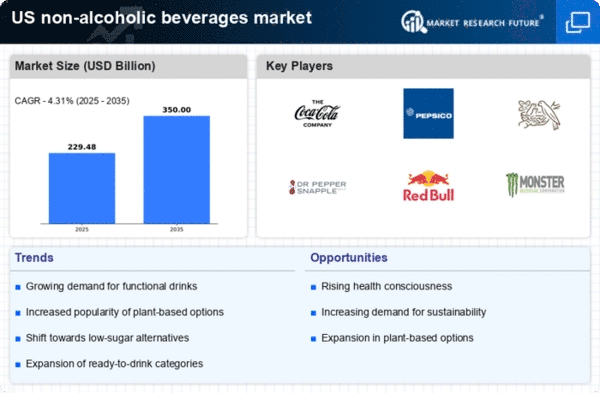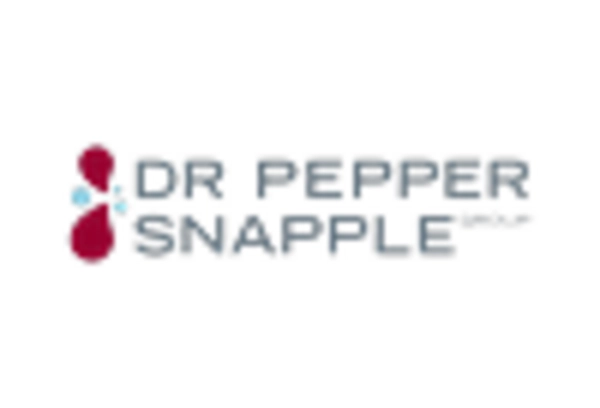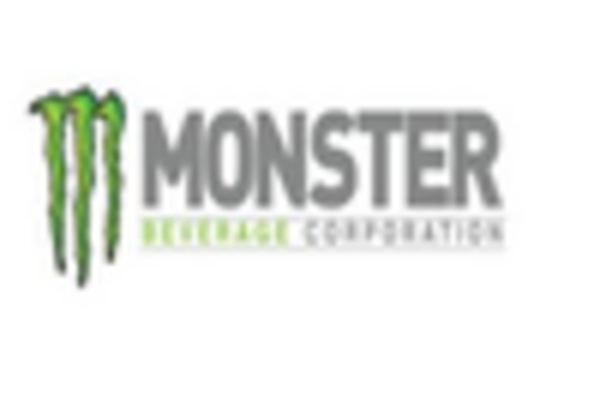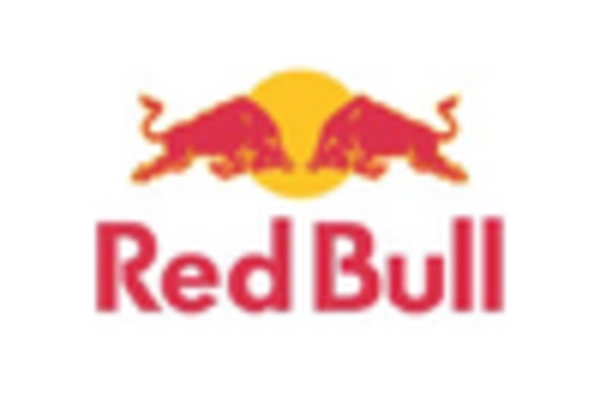Innovations in Flavor Profiles
Innovation in flavor profiles is a significant driver in the non alcoholic-beverages market, as consumers increasingly seek unique and diverse taste experiences. The introduction of exotic flavors and blends has become a focal point for brands aiming to differentiate themselves in a competitive landscape. Market analysis suggests that beverages featuring innovative flavors have seen a growth rate of 15% in sales over the past year. This trend is particularly evident among younger consumers, who are more adventurous in their beverage choices. As brands experiment with new ingredients and flavor combinations, they are likely to attract a broader audience, thereby enhancing their presence in the non alcoholic-beverages market.
Expansion of E-commerce Channels
The rise of e-commerce is transforming the distribution landscape of the non alcoholic-beverages market. With the increasing prevalence of online shopping, consumers are now able to access a wider variety of products from the comfort of their homes. Data shows that online sales of non alcoholic beverages have surged by 30% in the past year, indicating a shift in consumer purchasing behavior. This trend is particularly relevant for niche brands that may not have a strong presence in traditional retail outlets. As e-commerce continues to expand, it is expected that more consumers will turn to online platforms for their beverage needs, thereby reshaping the competitive dynamics of the non alcoholic-beverages market.
Rising Demand for Functional Beverages
The non alcoholic-beverages market is experiencing a notable shift towards functional beverages, which are perceived as healthier alternatives. Consumers are increasingly seeking drinks that offer added benefits, such as vitamins, minerals, and probiotics. This trend is reflected in the market data, indicating that functional beverages accounted for approximately 25% of total sales in the non alcoholic-beverages market in 2025. The growing awareness of health and wellness is driving this demand, as consumers prioritize products that contribute to their overall well-being. As a result, manufacturers are innovating to create beverages that not only quench thirst but also provide nutritional value, thereby expanding their market share in the non alcoholic-beverages market.
Increased Focus on Clean Label Products
The clean label movement is gaining momentum within the non alcoholic-beverages market, as consumers demand transparency regarding ingredients and sourcing. This trend is characterized by a preference for products that contain natural ingredients and minimal additives. Recent surveys indicate that over 60% of consumers are willing to pay a premium for beverages that are labeled as clean. This shift is prompting manufacturers to reformulate their products to meet these expectations, thereby enhancing their appeal in the non alcoholic-beverages market. As a result, brands that prioritize clean labeling are likely to experience increased customer loyalty and market growth.
Growing Interest in Plant-Based Alternatives
The non alcoholic-beverages market is witnessing a growing interest in plant-based alternatives, driven by the increasing popularity of vegan and vegetarian lifestyles. Consumers are actively seeking beverages made from plant-derived ingredients, such as herbal teas, nut milks, and fruit juices. Market Research Future indicates that plant-based beverages have experienced a growth rate of 20% in sales over the last year. This trend reflects a broader societal shift towards sustainable and health-conscious choices. As more consumers embrace plant-based diets, manufacturers are likely to expand their offerings to include a wider range of plant-based beverages, thereby capitalizing on this emerging segment within the non alcoholic-beverages market.
















